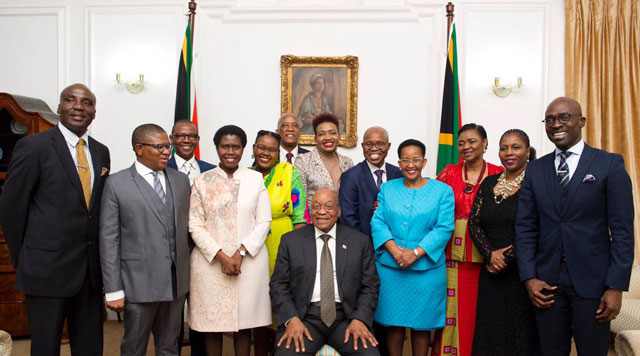
Johannesburg, South Africa | AFP | South Africa’s new Finance Minister Malusi Gigaba Saturday pledged to implement the policies of the ruling ANC as the party remains deeply divided over the sudden firing of his predecessor.
Gigaba on Thursday replaced Pravin Gordhan, ousted in a shock midnight cabinet reshuffle by President Jacob Zuma that has exposed the divisions within the African National Congress (ANC).
“I will focus sharply on the task of implementing the policies of the African National Congress, to better the lives of the majority of South Africans,” Gigaba told journalists in the capital Pretoria.
In 2014, the ANC adopted “radical economic transformation” policies in a bid to accelerate the inclusion of the previously marginalised black majority into the mainstream economy.
Gigaba said there was a growing consensus within the ruling party that “the pace and depth of transformation has been too slow and in many instances, superficial.”
The appointment of Gigaba, a former home affairs minster, however has raised concern among the opposition parties and economic observers as he does not have a finance background and is widely seen as a Zuma ally.
Gigaba said he was fully aware of the current “highly politicised, polarised” environment in the country, vowing not to be “distracted by external issues”.
He acknowledged there was a “climate of sharp disagreement and mutual suspicion” following his appointment.
The sacking of Gordhan and his deputy Mcebisi Jonas has been described by critics as a move by Zuma to put a loyalist in charge of the treasury.
Gordhan who had championed clean governance was respected internationally for his fiscal prudence and his firing prompted a deluge of calls by opposition parties and some ANC stalwarts for Zuma to resign.
The reshuffle has been described as not being in the interest of the country and could hurt the ailing economy.
In his maiden press conference, Gigaba spoke well of his predecessor Gordhan but pointed out the need to focus on maintaining South Africa’s investment grade by ratings agencies.
South Africa was granted a reprieve at the end of last year when rating agencies did not drop it to the “junk” investment category following a series of downgrades, but they warned of the impact of poor growth and political instability.
 The Independent Uganda: You get the Truth we Pay the Price
The Independent Uganda: You get the Truth we Pay the Price





